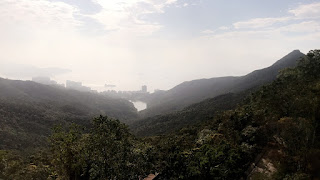In the article “McDonald’s in Hong Kong: Consumerism, Dietary Change, and the Rise of a Children’s Culture,” James L. Watson discusses the booming success of McDonald’s in Hong Kong along with his experience visiting one. I have personally visited a McDonald’s in Hong Kong before and in many other countries as well. I have made it a goal of mine to visit a McDonald’s in as many countries as possible and plan to visit them in other countries moving forward. I will continue to do so just because I find it very interesting to experience the many differences and/or similarities to the McDonald’s restaurants in the United States.
I was curious to read this article because when I visited the McDonald’s in Hong Kong, I found it rather fascinating how different the experience was versus how it has been for me in the United States. Hong Kong’s McDonald’s restaurants are chock full of surprises. First off, I found it strange that the children in Hong Kong choose to have their birthday parties at McDonald’s. Even though children from the United States also have their birthday parties at McDonald’s, it shocked me because I thought that they would follow more traditional ways of celebrating. In addition, their menu includes some very interesting selections like soy milk, Thai chicken wings, and macaroni and cheese toasties. I was also fascinated by the service that was provided. I was not expecting an employee to personally deliver my food to me and also take my plate when I was finished. It made me feel somewhat guilty. I know wages are low in Hong Kong so it also made me feel the need to tip the employee since it was obviously the reason they were doing it. Most of the McDonald’s restaurants are open 24 hours a day and are always full of people, even when it is 5:00 am, which is when I happened to visit. There are even children doing their homework and homeless old men catching up on their sleep. On the other hand, just like in the United States, I didn’t see any recycling bins which is the one thing that didn’t surprise me. I plan to visit at least one McDonald’s in every other country I travel to going forward so that I can experience how culturally different they are from the ones in the United States.





